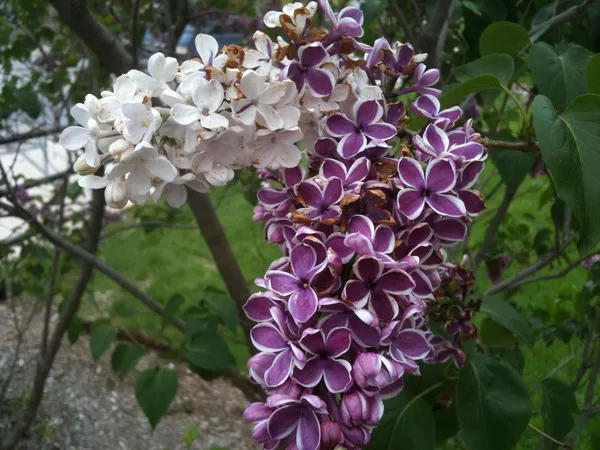Flies can quickly become an irritating nuisance, buzzing around our homes and gardens, and even posing health risks by transmitting diseases. While chemical insecticides are commonly used to combat these pesky pests, they come with environmental concerns and potential health hazards. Fortunately, nature provides us with an array of herbs and flowers that serve as effective and natural fly repellents. In this article, we explore the power of these botanical wonders in keeping flies away, their various applications, and their broader benefits in promoting a harmonious ecosystem.
The Role of Herbs and Flowers in Natural Pest Control
1. Natural Repellents: Herbs and flowers have been utilized for centuries as natural insect repellents. They contain volatile oils and compounds that flies find unpleasant, deterring them from infesting our living spaces and outdoor areas.
2. Environmentally Friendly: Unlike synthetic chemical insecticides, which may have detrimental effects on the environment and non-target species, herbal and floral repellents are biodegradable and generally harmless to beneficial insects and wildlife.
3. Health Considerations: Chemical insecticides can pose health risks to humans and pets if ingested or absorbed through the skin. Herbal and floral repellents are non-toxic and can be a safer alternative for pest control, especially in homes with children and pets.
Herbs That Repel Flies
1. Basil: Not only a flavorful culinary herb, but basil also acts as a potent fly repellent. The strong aroma of basil leaves deters flies and other flying insects from entering your home or congregating around outdoor seating areas.
2. Lavender: Lavender’s sweet and soothing fragrance is beloved by humans but repels flies and mosquitoes. Planting lavender in your garden or placing dried lavender sachets indoors can help keep these pests at bay.
3. Mint: Mint’s refreshing scent is delightful to us but acts as a natural fly deterrent. Planting mint around doorways or windows can help prevent flies from entering your home.
4. Rosemary: Rosemary’s woody scent is a powerful fly repellent. Burning dried rosemary as incense can also be an effective way to keep flies away.
5. Lemongrass: Lemongrass contains citronella, a natural insect repellent. Crushing lemongrass leaves or using lemongrass oil can help create an inhospitable environment for flies.
Flowers That Repel Flies
1. Marigold: The bright and vibrant marigold not only adds color to your garden but also repels flies and other insects. Planting marigolds around your outdoor space can help reduce fly populations.
2. Chrysanthemum: Chrysanthemums contain pyrethrin, a natural insecticide that repels flies, mosquitoes, and other insects. Placing potted chrysanthemums indoors or in outdoor seating areas can be an effective fly deterrent.
3. Nasturtium: Nasturtium’s vibrant flowers produce a peppery scent that flies dislike. Planting nasturtiums in your garden or using them as potted plants can help keep flies away.
4. Petunia: Petunias release a fragrance that is pleasant to humans but unappealing to flies. These beautiful flowers can serve as both decorative elements and fly repellents in your garden.
Additional Methods for Fly Control
1. Citrus Peels: Flies are repelled by the strong scent of citrus. Placing citrus peels, such as lemon or orange, in areas where flies gather can discourage their presence.
2. Essential Oils: Certain essential oils, such as eucalyptus, citronella, and peppermint, have strong fly-repellent properties. Diluting these oils with water and using them as sprays or diffusers can create a fly-free environment.
3. Fly Traps: You can create DIY fly traps using apple cider vinegar, sugar, and dish soap. Flies are attracted to the mixture but get trapped and drown in the liquid.
The Ecological Benefits of Natural Fly Repellents
Using herbs and flowers as fly repellents not only benefits us but also contributes to a healthier and more balanced ecosystem.
1. Preservation of Beneficial Insects: Chemical insecticides can harm beneficial insects like bees and butterflies, which are essential for pollination. Natural repellents, on the other hand, do not pose a threat to these vital pollinators.
2. Soil Health: Herbs and flowers enrich the soil with nutrients, promoting better plant growth and overall soil health. A thriving garden can attract beneficial insects that naturally keep pest populations in check.
3. Biodiversity: Planting a variety of herbs and flowers creates a diverse ecosystem that supports various organisms. This biodiversity enhances the resilience of the garden and helps maintain a natural balance of insect populations.
Conclusion
Nature has provided us with an array of herbs and flowers that serve as effective and eco-friendly fly repellents. From the refreshing aroma of mint to the vibrant allure of marigolds, these botanical wonders not only keep flies at bay but also contribute to a harmonious and diverse ecosystem. By opting for natural fly control methods, we can protect our health, preserve beneficial insects, and promote a sustainable approach to pest management. Embracing the power of herbs and flowers in fly control allows us to coexist peacefully with nature while keeping our living spaces fly-free and enjoyable.


